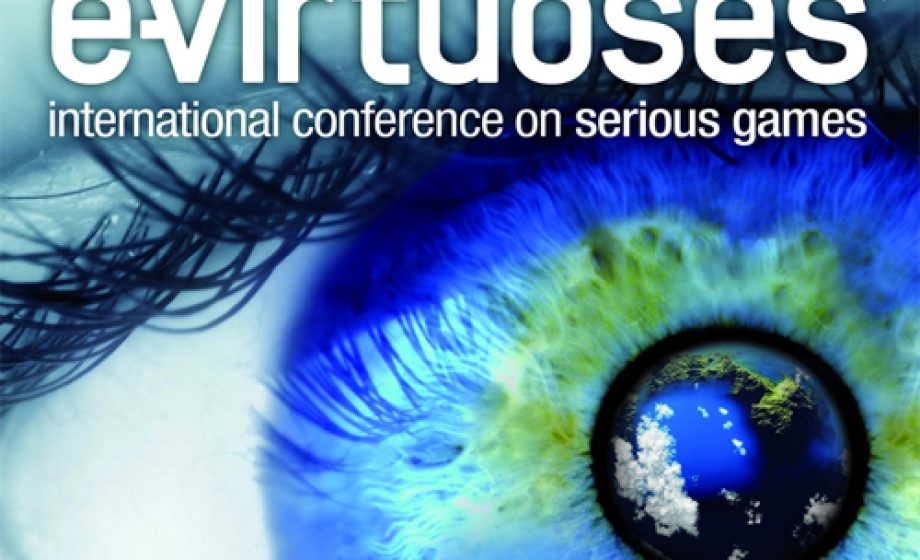 Last week I attended one of, perhaps, the best kept secrets in games conferences e-virtuoses 2013, which took place in the northern French town of Valenciennes. What really sets e-virtuoses apart is its focus, which centers on serious games. When most people think of video games, they immediately associate them with pure entertainment. However, in the world of serious games, the objective is to design games for a primary purpose, such as for education, health care, emergency management, political, defense, etc. Innovation in this area can often take many forms, including the development of games for ‘serious’ applications, repurposing of existing entertainment games as serious games, or gamifying objects or contexts that were not originally game-like in nature.
Last week I attended one of, perhaps, the best kept secrets in games conferences e-virtuoses 2013, which took place in the northern French town of Valenciennes. What really sets e-virtuoses apart is its focus, which centers on serious games. When most people think of video games, they immediately associate them with pure entertainment. However, in the world of serious games, the objective is to design games for a primary purpose, such as for education, health care, emergency management, political, defense, etc. Innovation in this area can often take many forms, including the development of games for ‘serious’ applications, repurposing of existing entertainment games as serious games, or gamifying objects or contexts that were not originally game-like in nature.
Given this sector seeks to utilize games and game design principles to affect positive outcomes in real-world situations, this sector of the gaming world tends to have a very strong link with the academic and research sector. However, as the incorporation of games in various different applications and situations is increasing, the commercial and the academic/research worlds seem to be slowly but surely approaching together. e-virtuoses strives, and is increasingly becoming a forum for major actors and decision makers from these two worlds to come together.
Two of the biggest strengths of this year’s edition were the speakers and the e-virtuoses Awards. The most notable speaker was Chris Crawford, who easily qualifies as one of the top, most respected gurus in game design. Crawford is best known for development of numerous titles for Atari, including Scram and Balance of Power, penning the first video game design academic work “The Art of Computer Game Design”, and founding one of the top games conferences in the world, the Game Developers Conference. His philosophical approach to game design and optimism about the ability of games to help tackle real-world problems like deficiencies in eduction, political conflicts, and health system challenges, offered an encouraging validation of the huge potential of this growing sector.
The e-virtuoses awards were also a big highlight of the event, displaying some of the top innovations in the sector. Many of the projects came from startups who develop both serious and entertainment-focused games and the vast majority came from France. Winners were designated across five categories including serious game training, serious game communication, serious game health, gamification, and serious gaming. The winners included everything from educational games to gamification of museum visits to games used for physical rehabilitation. Although the contest will hopefully have more international entrants next year, it was nice to see a dispersion of entrants and winners from all over France. You can check out the winners and learn more about their projects here.
Interestingly, the big game companies are largely absent from the forum. This is not really surprising given the fact that the focus is serious applications for games rather than entertainment. However, it’s likely that the opportunity that this area offers is not going unnoticed by big games producers and distributors. As one participant pointed out, it is important for the business side of this sector to be present even if only to brainstorm a bit on how to make many of the terrific ideas and projects on display commercially viable. Perhaps that’s one aspect that will evolve in next year’s edition.
If the subject of serious games interests you, make sure to also check out Games for Change, coming up on June 17 & 18th during Futur en Seine.

